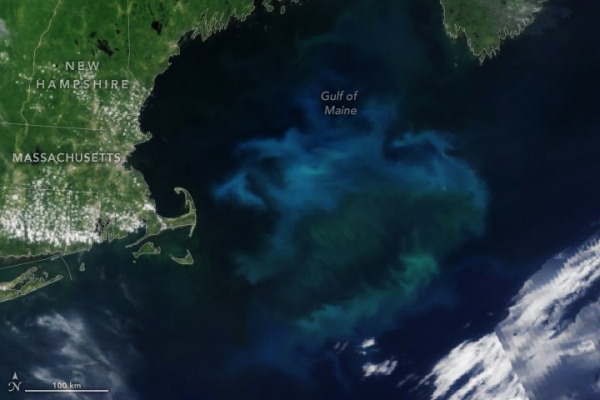Mount Lewotobi Laki-Laki, a volcano on the Indonesian island of Flores, erupted on July 7, 2025, propelling a column of ash 18 kilometers (11 miles) into the air.
articles
Revealing the Secret Behind Noctilucent Clouds
The researchers behind the UiT-led rocket project MaxiDusty-2 aim to uncover why noctilucent clouds are forming more frequently than before and whether this could eventually impact Earth's temperature.
How the Rush to Quit Coal is Fueling a New ‘Gas Trap’
In 2015, 195 countries met in Paris to sign a global agreement to cut carbon emissions.
A Booming Bloom Returns to the Gulf of Maine
In summer 2025, waters in the Gulf of Maine popped with vivid swirls of blue and green.
Nature-Friendly Farming Boosts Biodiversity and Yields but May Require New Subsidies
Farming methods that support nature improve both biodiversity and crop yields but more extensive measures may require increased government subsidies to become as profitable as conventional intensive agriculture.
Coral Larvae Travelling Further Makes Populations Stronger
Understanding how far Great Barrier Reef corals are from their parents could be key to identifying and protecting at risk populations, University of Queensland research has found.










